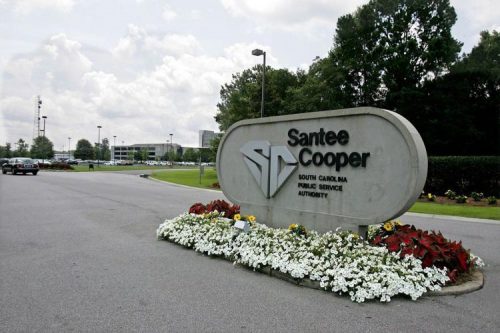Principle Meets Practical on Santee Cooper
I was among the first to call for the state to Sell Santee Cooper and get out of the utility business. This call came not under Governor Henry McMaster (2017) or even under Governor Mark Sanford (2002), but in the 1990s when I was asked to contribute ideas to a bipartisan policy manual for Governor-Elect David Beasley.
But my opinion on selling Santee Cooper has evolved since 1994-95.
In the 1990s, for myself and many others, sale was a purely an ideological position. Governments, particularly state governments, should not be owning and operating businesses. That was for the private sector.
When it came to Santee Cooper, many of us felt that even a private sector monopoly would be better than a rogue state agency. At least those running the monopoly—from the boardroom to the C suite—would have wide and deep experience in electric utility management.
Today, when I look at the Santee Cooper issue, my belief about the core functions of government remains. That is not a total disqualifier from having a position, as some would have us believe. Every person brings core beliefs to policy.
But, the principles found in softer sciences about the role of government have been bolstered, even overshadowed, by the firm numbers of the harder science of economics. Economists and other experts in public finance (consultants to the department of administration, consultants to the legislative Santee Cooper committee, and affiliated economists of Palmetto Promise Institute) all say the same thing about Santee Cooper and that is this: the debt incurred by the failure of V.C. Summer 2 & 3 must be paid by Santee Cooper (and co-op) ratepayers or a force outside Santee Cooper.
The debt is the determiner (or should be) for the future.
It appears that a part of that outside force will be Dominion Energy. In the Toal court, the new owner of SCE&G has agreed to pay a part of the tab to Santee Cooper ratepayers for V.C. Summer. But much more debt remains, and it will be shouldered by ratepayers from some of the poorest areas of South Carolina.
When the future of Santee Cooper began to be debated in the General Assembly earlier this year, the Department of Administration (Admin) presented the legislature three options, each of which Admin staff sweetened through hard negotiations. That meant that other than an obsession with process questions related to hurdles created by Act 95, the issues left to be resolved were whittled to only a few.
Of those remaining issues, as we have written, the Santee Cooper question has come down to two points to settle: legislation and liabilities…and cash, which is an outgrowth of those.
Cutting to the chase, that means that if after the sale the state will be left with liabilities (pensions, Pee Dee coal plant litigation and a couple others which can be roughly quantified), those potential liabilities should be fully indemnified as a part of the sale.
As for legislation, yes, the General Assembly must pass a bill to provide security for a buyer in a billion-dollar transaction. But the details of that legislation must be further negotiated (and can be).
Most important of all is the issue of cash. The effects of COVID-19 on our economy are yet to be determined, but we saw the range from BEA a few weeks ago. Our state coffers need cash now.
So, if exposure due to pensions and lawsuits is settled, if funding and rate legislation is fine-tuned, if recreational aspects like the lakes are protected, and if the state is left with hard cash on the barrel head, why would we not sell Santee Cooper?
Unless we are venerating an institution just for the sake of venerating it, to not accept needed and substantial cash for an entity that we should not own anyway—and thereby restoring a portion of the likely cuts in education, corrections, and health—would be irresponsible.
Setting governmental theories aside, hard numbers and facts alone dictate that selling Santee Cooper should stay on the legislative table. The sale option should not be dropped in light of COVID, and given some additional negotiation, sale is made even more sensible in the wake of it.






